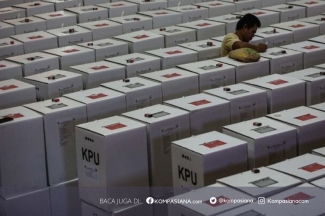The following article was translated into English Version. The original article was published on August 1, 2022, and can be found on Instagram @rupapolitikid
The Clear Escalation of Climate Crisis
The escalating climate crisis, marked by heatwaves, floods, and increasing hunger, demands concrete actions stemming from climate change commitments. Recent natural phenomena, such as the heatwaves in Europe and America, signify the direct impacts of rising global temperatures, leading to polar ice melt and posing a significant threat to island nations. Despite being archipelagic, Indonesia contributes 2% of the world's carbon emissions, as BP Statistical of Energy reported. The Air Quality Live Index (AQLI) reveals that Indonesia has recorded its worst air quality in the last two decades, with 91% of the population residing in areas exceeding WHO's safe air pollution limits.
Economic Growth and Environmental Impact
Examining economic growth, Indonesia has consistently outperformed global economic growth rates in the 20 years preceding the pandemic. However, economic growth significantly impacts climate conditions, necessitating sustainable development policies. Sectors like forestry, land use, and energy play pivotal roles. While Indonesia has initiated mitigation measures like the forest moratorium and coal moratorium in 2021 and aims for national net-zero emissions by 2060, Greenpeace contends that Indonesia's efforts fall short, especially considering the country's potential for significant mitigation through these moratoriums.
Discrepancies in Climate Commitments
Greenpeaceid's post titled 'President Jokowi Breaks Promise to Address the Climate Crisis' highlights the disparity between President Jokowi's climate commitments in speeches and the on-ground reality. Despite claims of reduced deforestation rates, Indonesia lost 3.07 million hectares of forests during Jokowi's tenure till 2021. Commitments to climate financing and innovative financing, including green bonds, face challenges, with 88% of the 2020 budget allocation for energy support (Rp 246 trillion out of Rp 279 trillion) directed towards fossil fuel funding.
Analyzing Commitments vs Reality
The analysis of commitments versus reality indicates that Indonesia has yet to earnestly address climate issues. The climate narrative often appears as lip service from leaders, where commitments in speeches lack alignment with tangible climate actions. This discrepancy raises questions about the sincerity and effectiveness of Indonesia's climate efforts.
Political-Economic Dilemma in G20
